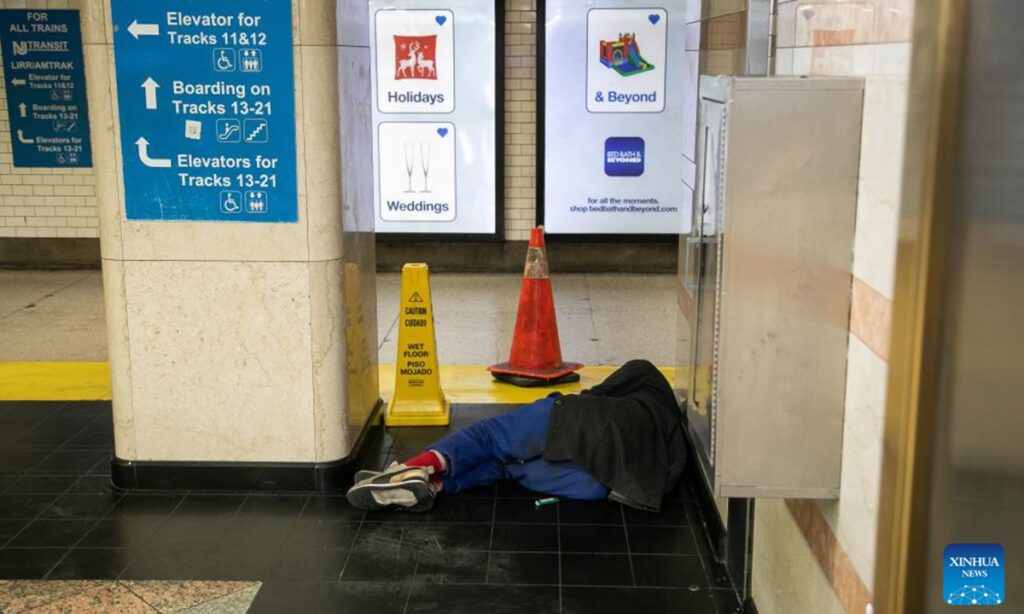Reports show that the man, Sun Weidong, was admitted to Fudan University’s physics department at the age of 16. After he graduated, he went to the US for further studies through a scholarship via the China-US Physics Examination and Application program. Sun acquired not only master’s and doctoral degrees in the US, but he also became a US citizen. He said that he had worked as a post-doctoral researcher for two years and then a software engineer at a Wall Street company for another two years with an annual pay of around $130,000. In 2007, he became homeless and moved to Brooklyn, sleeping in internet cafes and then on the streets.
The Fudan Alumni Association of USA in New York posted a statement on WeChat Saturday, confirming Sun is a Fudan graduate, and members of the association, as well as people from Sun’s hometown, Jiangyin, Jiangsu Province, visited him, and helped him move into temporary accommodation.
Sun’s story continued to be a hot topic on Chinese social media for days. Some netizens wished that he would overcome the difficulties soon. Some wrote that he is not China’s problem, and that as he is a US citizen, the US should look after him.
What attracted the most attention is how a genius ended up as a hobo, something practically unheard of in China. According to reports, it has much to do with problems in his personal life – divorce, gambling, and mental disorder. Granted, personal factors are crucial in one’s life trajectory. The US’ insufficient assistance to marginal people also plays a part when Sun lost his entire life due to a few unexpected life changes.
The homeless population in the US, the only super power in the world, tends to be neglected by the society they live in, and the number of homeless is increasing. The Department of Housing and Urban Development (HUD) issued a report in December 2023, saying that between 2022 and 2023, the number of people experiencing homelessness increased by 12 percent, or roughly 70,650 more people. On a single night in 2023, roughly 653,100 people – or about 20 of every 10,000 people in the US – were experiencing homelessness.
There are many reasons for homelessness in the US, including unemployment, domestic violence, loss of social security, and mental illness. Some observers noted that to some extent, Sun’s experience can be viewed as a typical American story. He went to the US, became an American, faced some difficulties and gave up on himself. This is so American. And the US society abandoned him, until Fudan Alumni Association found him and offered help.
Sun’s story also shows that people have misunderstandings about the US. It is often said that the US values talents. Well, not those studying basic sciences, except for very rare extremely outstanding individuals. Many American dreams have ended in failure.
In a city like New York, it is very likely to encounter taxi drivers with doctorate degrees in politics, history or even science. The job market in the US is very realistic and utilitarian, and the employment prospects for basic science graduates are narrow, Lü Xiang, a research fellow at the Chinese Academy of Social Sciences, told the Global Times. Lü added that Sun once studied and worked as a software engineer, a popular choice in the US, especially with the high demand for IT professionals in the 1990s.
In comparison, China’s embrace for talents is not as utilitarian as the US. China values research in every field including basic sciences. China is currently the best place for various talents to give play to their abilities, Lü said.
If Chinese people ever find it hard to fit in other countries, come home. They will found abundant opportunities and better environment for outstanding talents.




